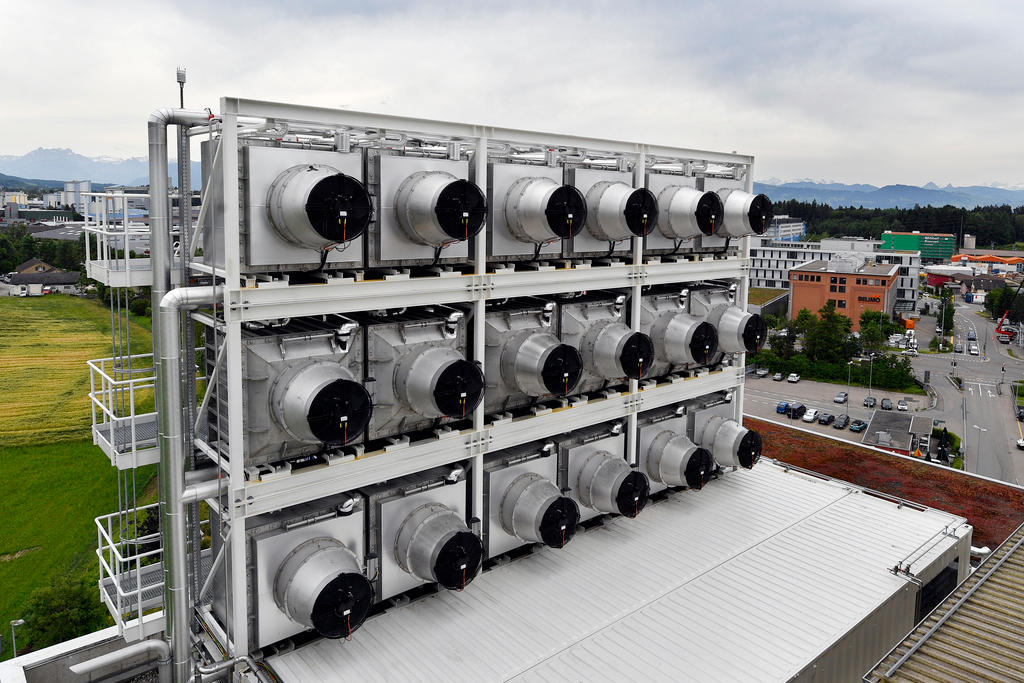
Critics demand greater efforts to reduce CO2 output

Annual greenhouse gas emissions dropped slightly in 2017, according to the latest figures by the government’s environment agency. But Switzerland is unlikely to reach its targets.
The Federal Office for the EnvironmentExternal link said emissions of CO2 equivalents in 2017 hit 47.2 million tons, about one million tons less than the previous year.
The mild winter season, an increasing number of better insulated buildings and fewer oil and gas heating systems contributed to the slight decrease, according a statement published on Monday.
Transport-related CO2 gas emissions dropped by 2% compared with 2016.
Emissions from the industrial sector have stagnated for several years while the agriculture sector saw a massive increase in synthetic refrigerants, according to the environment agency.
Overall, emissions in 2017 were 12% below those of 1990 but still short of the goals agreed in the Kyoto ProtocolExternal link.
The new figures for the 1990-2017 period are part of the greenhouse gas inventoryExternal link –comprehensive emissions statistics to be reported under the United Nations Framework Convention on Climate Change.
According to the international agreement, greenhouse gas emissions have to be reduced by 15.8% during the 2013-2020 period compared with 1990 levels.
Not enough
Critics argue that not enough is being done under the current system of national voluntary measures to combat climate change.
Climate scientist Reto Knutti of the Federal Technical Institute of Zurich (ETH Zurich) says individual efforts are important but compulsory measures are necessary.
“Politicians have failed to take action to reach the goals of the Paris climate agreementExternal link over the past months,” he told SRF public radio in an interview on Monday.
In a similar vein, the Swiss chapter of WWF called for a sustainable system of investments in technologies that operate without fossil energy.

More
Is sucking CO2 from the air the answer to global warming?

In compliance with the JTI standards
More: SWI swissinfo.ch certified by the Journalism Trust Initiative




























You can find an overview of ongoing debates with our journalists here . Please join us!
If you want to start a conversation about a topic raised in this article or want to report factual errors, email us at english@swissinfo.ch.